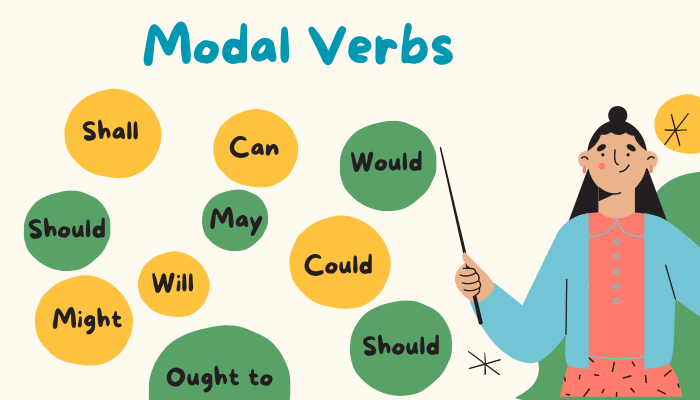Great site to keep my english skills updated for work and travel. I am really enjoying the lessons!
Maria C
 Argentina
Argentina


Modal verbs show possibility, intent, ability, or necessity. Because they’re a type of auxiliary verb (helper verb), they’re used together with the main verb of the sentence. Common examples include can, should, and must.
Modal verbs can be tricky, especially when it comes to using them in a sentence. The good news is that they’re simple once you learn how they work.

- We use will to express a strong possibility that something is true, especially when we don’t have actual evidence at the moment.
That will be Maria on the phone - she said she’d call.
- We use must to express complete certainty.
That must be Maria on the phone - she’s the only person with my new number.
- We can always use had to be meaning “must have been” to express certainty in the past.
She had to be the person I saw on the train.
- We use can/could or will/would to form questions.
Who can that be on the phone?
Who would have phoned so late?
- We can use modals of possibility to refer to the past, present or future.
Don’t drink it - it could/may/might be poisonous. (= present; I'm not sure about poison)
It can’t/could/may/might have been poisonous. (= past; ... but luckily it wasn't.)
We may/ought to/might/should get a reply tomorrow. (= future)
- There is sometimes a change in meaning.
It may have/might have rained. (= I’m not sure)
It could have rained. (= but luckily it didn’t)
Posted by Darat Ajyal Sharurah
Verifique sua pontuação - Experimente nosso Quiz de inglês grátis + receba um bônus grátis